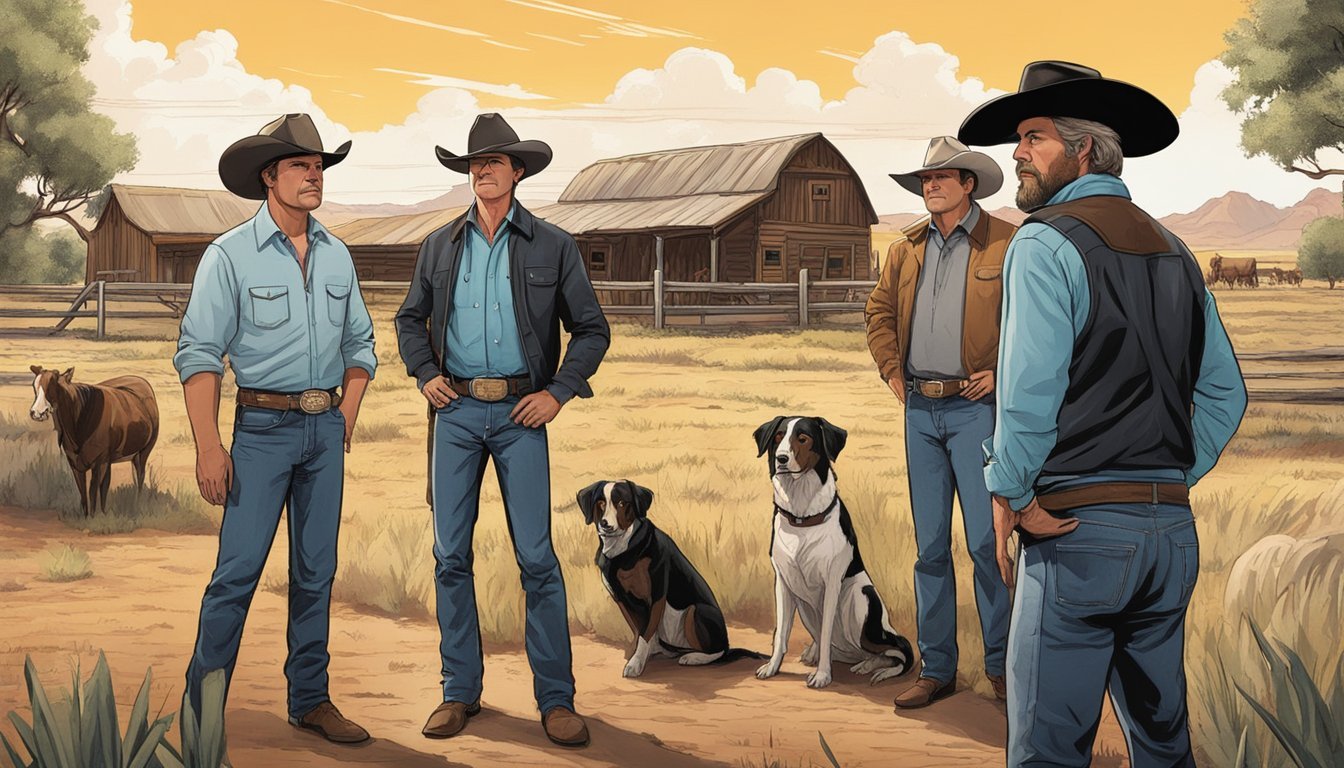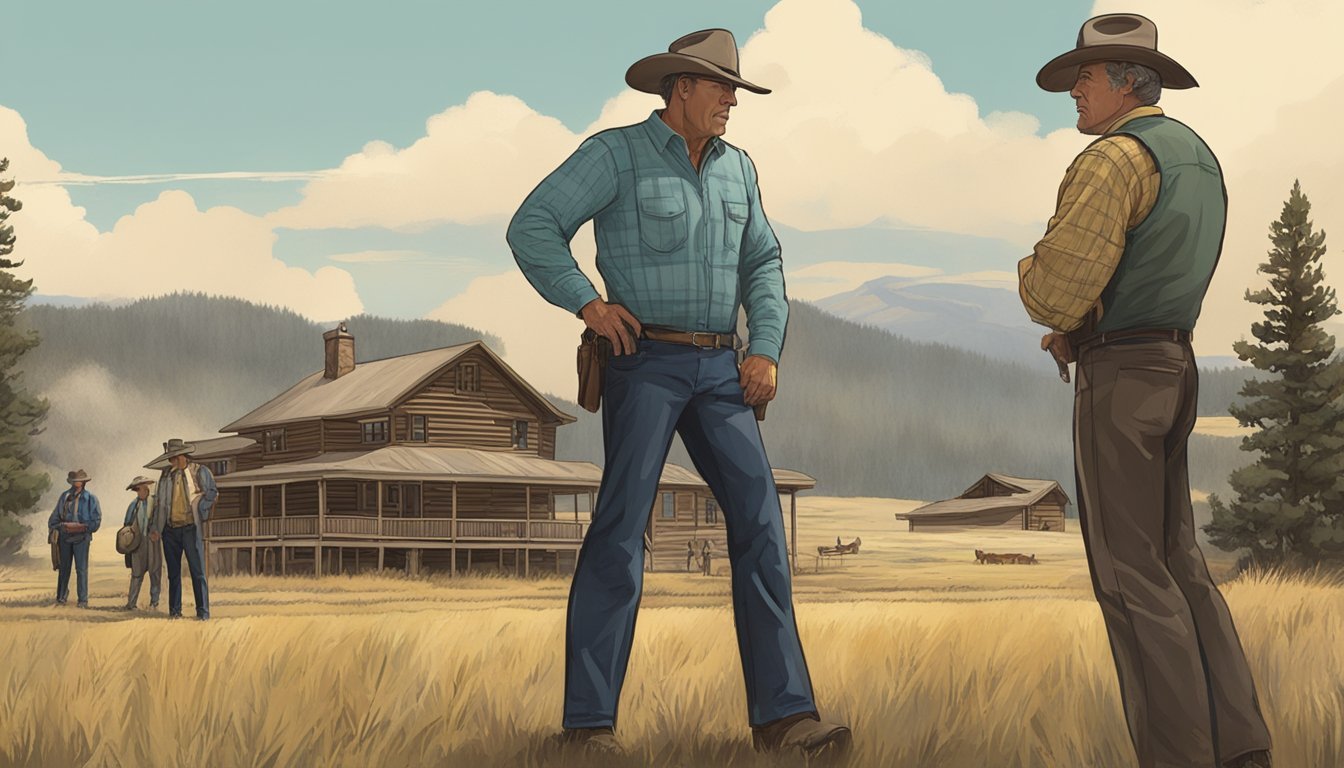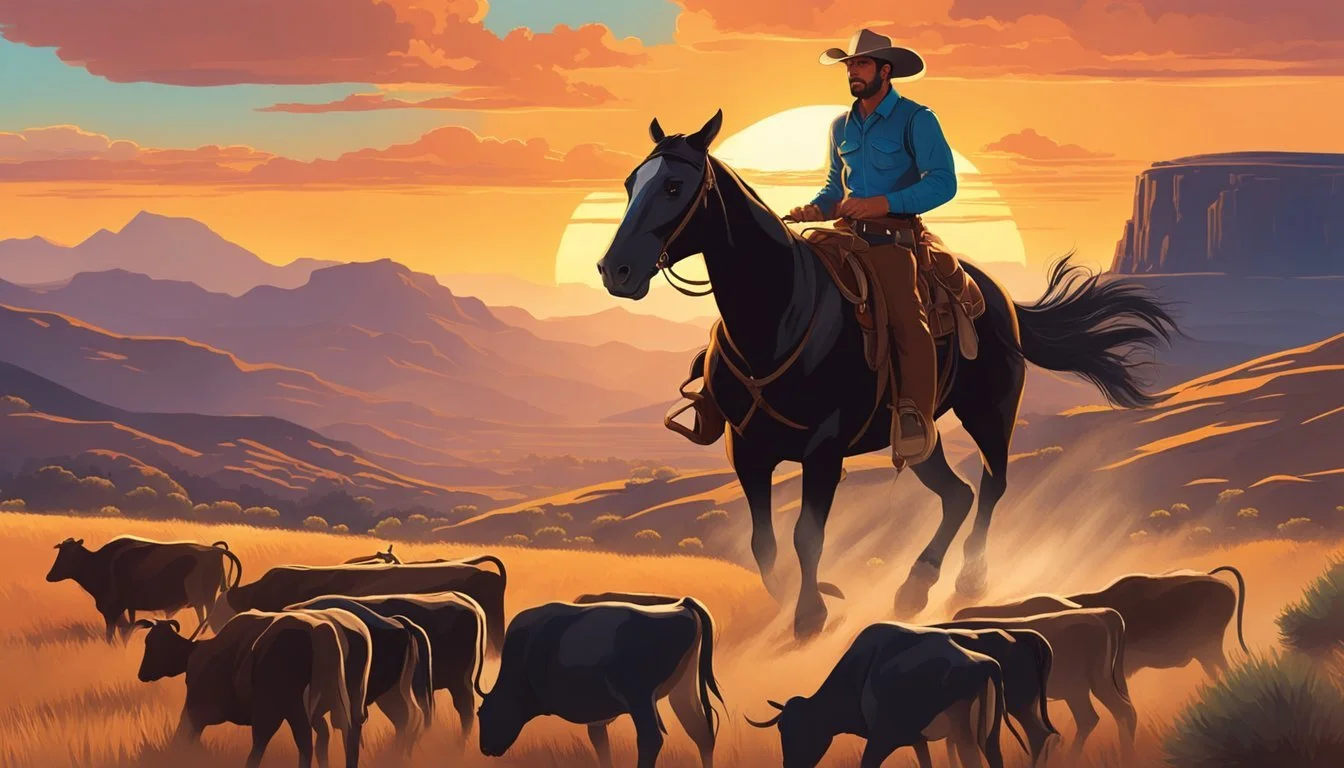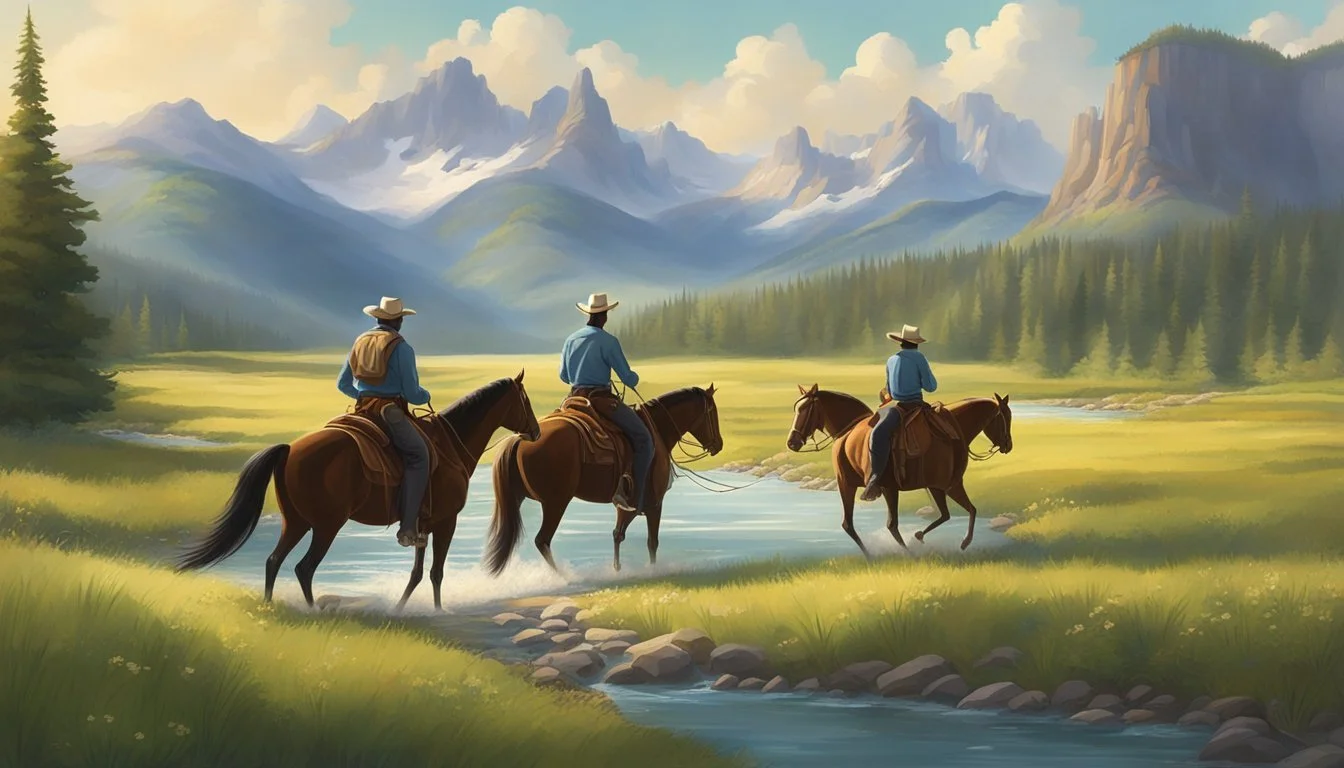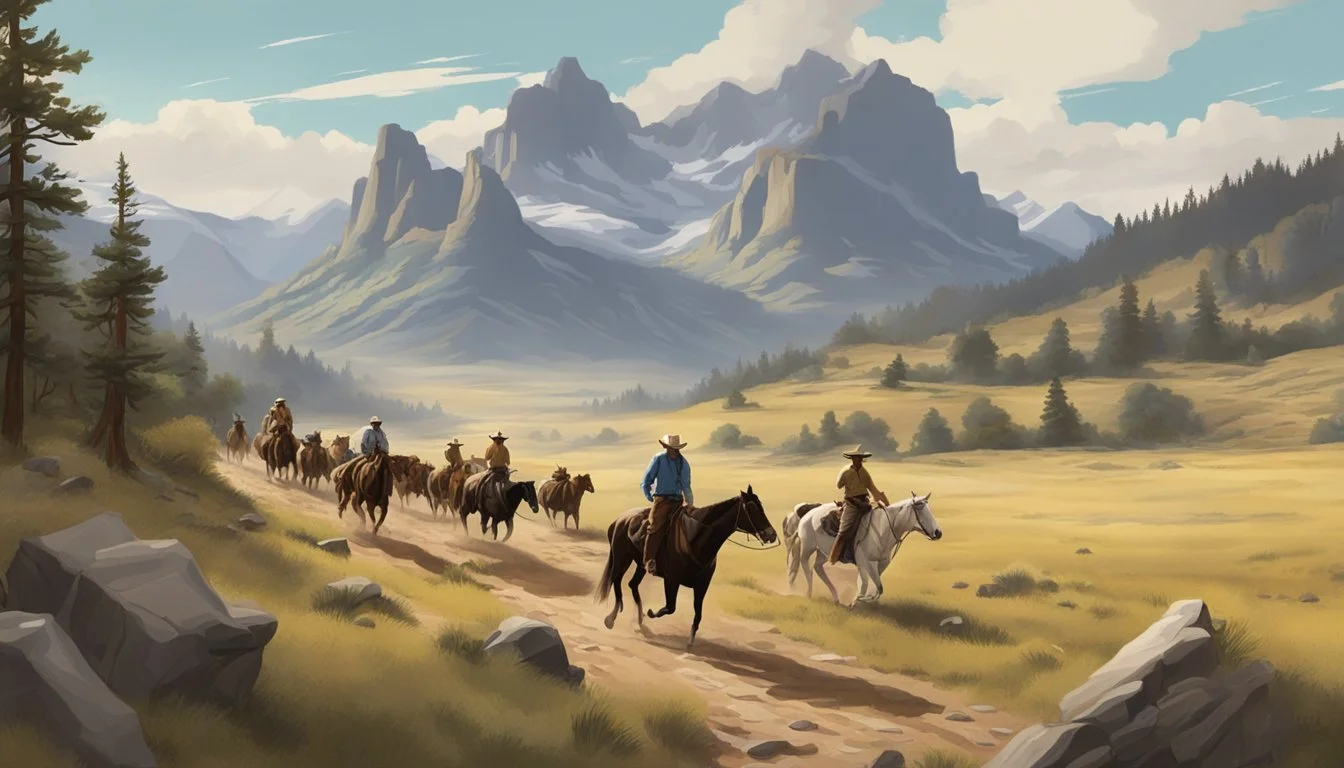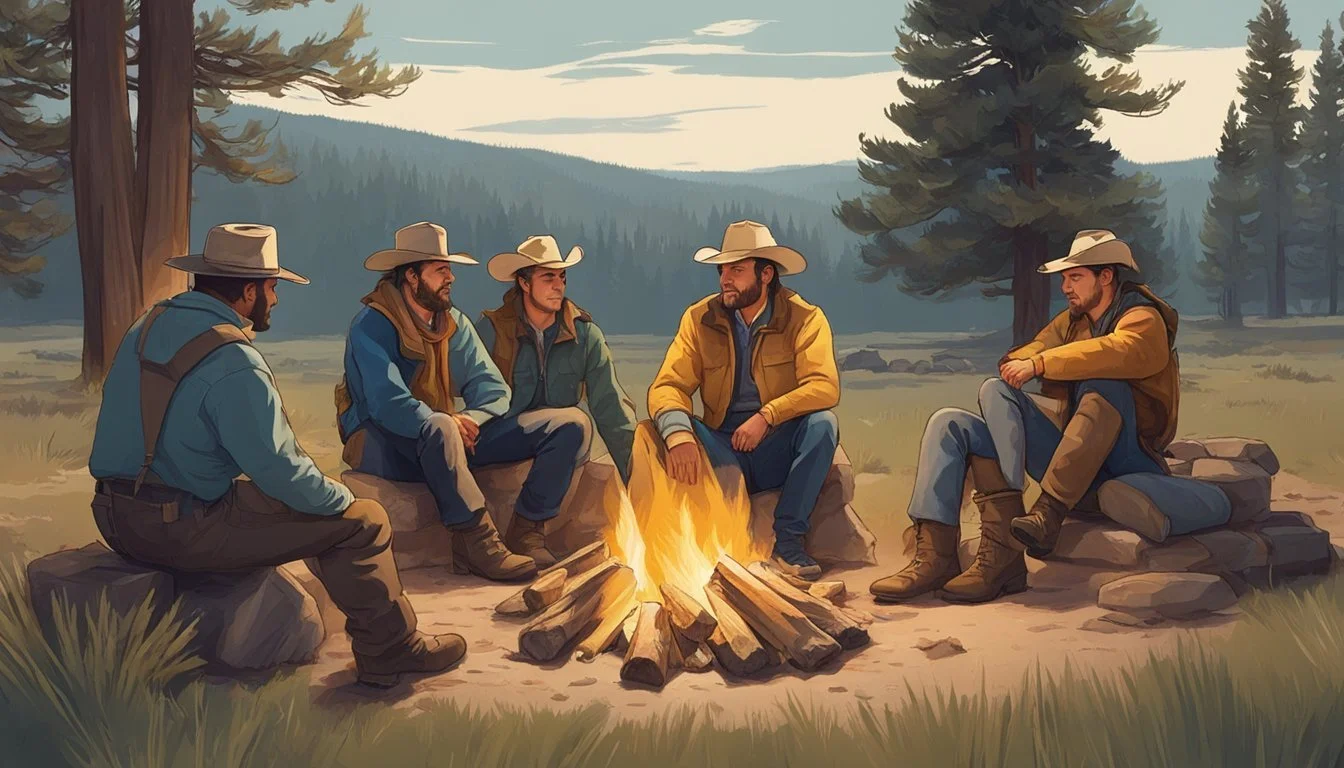Carter's Shocking Tech Billionaire Transformation Threatens Dutton Ranch Legacy
Carter's journey on Yellowstone has been one of growth and transformation. From a troubled orphan to a valued member of the Dutton Ranch, he's shown remarkable resilience and adaptability. But what if his path took an unexpected turn?
Imagine Carter leveraging his experiences at the ranch to become a tech innovator, creating revolutionary agricultural software. His startup skyrockets, catapulting him into the realm of Silicon Valley billionaires. Carter's newfound wealth and business acumen could lead him to make an audacious move: attempting to purchase the very ranch that gave him a second chance at life.
This scenario would dramatically shift the power dynamics on Yellowstone. The Duttons, particularly Beth and Rip who took Carter under their wing, would face a complex emotional and financial decision. Would they view Carter's offer as a betrayal or a potential solution to their ongoing struggles to keep the ranch? The clash between traditional ranching values and modern tech mogul ambitions could create riveting drama in the Yellowstone universe.
Carter's Journey to Wealth
Carter's path from troubled teen to tech tycoon was marked by ambition, innovation, and the lasting influence of the Dutton family. His experiences at Yellowstone Ranch shaped his entrepreneurial spirit and drive for success.
Early Life and Inspiration from the Duttons
Carter arrived at Yellowstone Ranch as a orphaned teenager, taken in by Beth Dutton and Rip Wheeler. The Dutton family's resilience and business acumen left a lasting impression on him. John Dutton's leadership style and Beth's fierce determination became models for Carter's future endeavors.
At the ranch, Carter learned valuable lessons about hard work, perseverance, and strategic thinking. These skills would prove crucial in his later business ventures.
Carter's Technological Endeavors
As Carter grew older, he developed a keen interest in technology and its potential to revolutionize traditional industries. He saw opportunities to apply tech solutions to ranching and agriculture.
Carter's first major project was a livestock management app that streamlined operations for ranchers. The app's success caught the attention of investors and tech incubators.
He went on to create innovative solutions for water conservation, sustainable farming, and land management. Each product addressed real-world problems he had witnessed firsthand at Yellowstone.
Becoming a Billionaire
Carter's tech ventures rapidly gained traction in the agricultural and environmental sectors. His company, YellowTech, became known for its user-friendly, practical solutions that bridged the gap between traditional ranching and cutting-edge technology.
A series of successful funding rounds and strategic partnerships propelled YellowTech to unicorn status. Carter's net worth skyrocketed as the company went public.
By age 30, Carter had amassed a fortune exceeding $10 billion. His success in the tech world was matched by his commitment to sustainable practices and support for rural communities.
Economic Impact on Montana
The hypothetical scenario of Carter becoming a tech billionaire and attempting to purchase the Yellowstone ranch would have significant economic implications for Montana. This influx of wealth and investment could reshape local industries and create new job opportunities across the state.
Investment in Local Businesses
Carter's tech fortune could spark a wave of investment in Montana's local businesses. Existing companies might receive funding to expand operations, while new startups could emerge in sectors like technology, agriculture, and tourism. This infusion of capital could modernize traditional industries and diversify the state's economic base. Local restaurants, hotels, and retail shops might see increased patronage from visitors drawn to the area by Carter's high-profile presence.
Job Creation and Economic Growth
The potential purchase of the Yellowstone ranch by a tech billionaire could lead to substantial job creation in Montana. New positions might open up in ranch operations, property management, and security. The tech sector could see growth as Carter potentially establishes satellite offices or research centers in the state. Construction jobs could surge with potential infrastructure improvements and new building projects. This economic activity could boost Montana's GDP, increase tax revenues, and potentially attract more skilled workers to the state.
The Acquisition of the Yellowstone Dutton Ranch
Carter's attempt to purchase the Yellowstone Dutton Ranch marks a pivotal moment in the ranch's history. The young tech billionaire's bid challenges the Dutton family legacy and introduces new possibilities for the iconic property.
Challenges and Negotiations
Carter's offer to buy the Yellowstone Dutton Ranch sparks intense negotiations with John Dutton. The family patriarch, known for his fierce protection of the land, initially resists the idea of selling.
Carter presents a compelling case, emphasizing his Montana roots and understanding of the ranch's importance. He proposes a substantial financial package, including provisions for the Dutton family's continued involvement.
John Dutton grapples with the decision, weighing the ranch's future against its storied past. The negotiations involve complex legal discussions and emotional family meetings.
Carter's tech background becomes a key factor, as he outlines plans to modernize operations while preserving the ranch's essence.
Managing the Ranch
Upon successful acquisition, Carter implements a new management structure for the Yellowstone Dutton Ranch. He retains key personnel to ensure continuity and preserve institutional knowledge.
Carter appoints a board of directors, including agricultural experts and tech innovators. This blend of traditional ranching wisdom and modern business acumen aims to steer the ranch into a new era.
The new owner establishes clear goals:
Maintain the ranch's cattle operations
Explore sustainable farming practices
Develop eco-tourism initiatives
Carter's hands-on approach involves regular meetings with ranch managers and workers. He learns about day-to-day operations and seeks input from long-time employees.
The transition phase focuses on balancing efficiency with respect for the ranch's traditions.
Integration of Technology Into Ranch Operations
Carter's tech expertise drives significant changes in ranch operations. He introduces advanced livestock management systems, using RFID tags and drones for herd monitoring.
Precision agriculture techniques are implemented:
Satellite imaging for crop and pasture management
AI-powered irrigation systems
Robotic milking stations
The ranch's infrastructure receives upgrades, including high-speed internet and smart building systems. These improvements enhance communication and energy efficiency across the vast property.
Carter develops a custom ranch management app, allowing real-time tracking of operations and finances. This tool empowers staff to make data-driven decisions quickly.
While some traditionalists resist these changes, many embrace the new technologies as they see improvements in productivity and animal welfare.
Navigating Family Dynamics
Carter's transformation into a tech billionaire sets the stage for complex interactions with the Dutton family. His attempt to buy the ranch creates new tensions and alliances, reshaping long-standing relationships.
Carter's Relationship with the Dutton Family
Carter's rise to wealth changes his dynamic with the Duttons. Once a troubled teen they took in, he now stands as a potential buyer of their legacy. John Dutton views this development with skepticism, seeing it as a threat to the ranch's future.
Rip Wheeler, who helped raise Carter, finds himself torn between loyalty to the Duttons and his connection to the young man. The ranch hands, many of whom remember Carter from his time working alongside them, have mixed reactions to his new status.
Some see opportunity in Carter's offer, while others view it as a betrayal of the values they hold dear.
Conflict and Alliance: The Role of Beth and Kayce
Beth Dutton, ever the strategist, sees Carter's bid as both a challenge and an opportunity. She works to leverage his offer to the family's advantage, potentially using it as a bargaining chip against other threats to the ranch.
Kayce Dutton, with his more empathetic nature, tries to bridge the gap between Carter and the family. He understands Carter's desire to prove himself but also recognizes the importance of preserving the Dutton legacy.
This situation tests the siblings' ability to work together, as they must balance their personal feelings for Carter with their duty to protect the ranch.
Jamie Dutton's Political Response
Jamie Dutton, as the family's legal expert and political player, approaches Carter's offer from a strategic angle. He examines the potential legal and political ramifications of selling the ranch to a tech billionaire.
Jamie considers how this move might affect his own political aspirations and the family's standing in Montana. He weighs the benefits of aligning with Carter's wealth and influence against the potential backlash from constituents who value traditional ranching culture.
This situation forces Jamie to navigate his complex relationship with the Duttons, balancing family loyalty against personal ambition and the greater good of the state.
Preserving Western Traditions
Carter's tech wealth could clash with Yellowstone Ranch's deep-rooted traditions. His desire to buy the property raises questions about maintaining the ranch's historic character while embracing modern innovations.
Respecting the Ranch's History
Yellowstone Ranch embodies generations of Western heritage. Its sprawling lands have witnessed the evolution of ranching practices and cowboy culture over decades. The Dutton family's stewardship has preserved time-honored techniques in livestock management and horsemanship.
Carter's potential ownership would need to honor these traditions. He might consider establishing a living history program to showcase traditional ranching methods. This could include demonstrations of roping, cattle drives, and blacksmithing.
Preserving original structures and artifacts would be crucial. The ranch's old barns, bunkhouses, and equipment tell the story of Western expansion and rural life.
The Balance Between Modernization and Tradition
Integrating new technologies while maintaining the ranch's essence presents a unique challenge. Carter could introduce sustainable farming practices and advanced livestock tracking systems. These innovations might improve efficiency without compromising the ranch's character.
Balancing modern comforts with rustic charm in guest accommodations would be key. Updating facilities to meet current standards while retaining an authentic Western ambiance would appeal to visitors seeking a genuine ranch experience.
Carter might invest in conservation efforts to protect the land and wildlife. This approach would align with both modern environmental concerns and the traditional role of ranchers as stewards of the land.
Environmental Considerations
Carter's transformation into a tech billionaire would likely influence his approach to managing Yellowstone Ranch. His wealth and technological expertise could be leveraged to implement innovative environmental practices and conservation efforts.
Sustainable Practices and Conservation
Carter might introduce cutting-edge sustainable technologies to the ranch operations. Solar panels and wind turbines could be installed to generate clean energy, reducing reliance on fossil fuels. Smart irrigation systems and precision agriculture techniques could optimize water usage and crop yields.
The ranch could adopt regenerative grazing practices to improve soil health and carbon sequestration. Carter might invest in research and development of sustainable feed alternatives for livestock to minimize methane emissions. Electric vehicles and machinery could replace traditional gas-powered equipment, further reducing the ranch's carbon footprint.
Wildlife Protection and Habitat Preservation
Carter's tech background could revolutionize wildlife monitoring and protection efforts. Advanced camera systems and drones might be deployed to track animal populations and detect poaching activities. GPS collars and biometric sensors could provide real-time data on wildlife health and movement patterns.
The ranch could establish wildlife corridors and protected areas using geofencing technology. Carter might fund habitat restoration projects, utilizing data analytics to identify optimal locations for reforestation and wetland rehabilitation. Artificial intelligence could be employed to predict and mitigate human-wildlife conflicts, ensuring coexistence between ranching activities and local ecosystems.
Impact on Regional Politics and the Broken Rock Reservation
Carter's newfound wealth and attempt to purchase the Dutton ranch would dramatically alter the political landscape of Montana. His actions would ripple through local and state governments, potentially reshaping alliances and power structures.
Political Influence and Power Shifts
Carter's tech billions would give him significant sway in regional politics. He could fund candidates, lobby for policies, and influence decisions at various levels of government. This influx of money might shift the balance of power away from traditional ranching interests.
Local politicians would likely court Carter's favor, hoping to benefit from his resources. His attempt to buy the ranch could spark debates about land use, zoning regulations, and property rights.
State lawmakers might propose new legislation in response to Carter's actions, potentially affecting large-scale land acquisitions or tech industry regulations in Montana.
Collaboration with Chief Rainwater and the Broken Rock Tribe
Carter's bid for the ranch could create an unexpected opportunity for the Broken Rock Reservation. Chief Thomas Rainwater might see Carter as a potential ally against the Duttons.
The tribe could propose a partnership with Carter, offering their support in exchange for commitments to preserve sacred lands or invest in reservation infrastructure. This collaboration could strengthen the Broken Rock Tribe's position in regional negotiations.
Carter and Rainwater might find common ground in their desire to challenge the status quo. Their alliance could lead to innovative economic development projects on reservation land, combining tech industry resources with traditional tribal knowledge.
Cultural Reflection in Media
Yellowstone's portrayal of ranch life and modern conflicts has sparked discussions about media representations of the American West. The show's blend of traditional values and contemporary issues resonates with viewers while shaping perceptions of rural culture.
Carter's Influence on Neo-Western Drama
Carter's hypothetical transformation into a tech billionaire attempting to buy the Dutton ranch would introduce a compelling twist to the Neo-Western genre. This storyline could explore the clash between old and new money, traditional land ownership, and tech-driven disruption. It would reflect real-world tensions between rural communities and urban investors seeking to acquire large tracts of land. The narrative could highlight generational divides within ranching families and examine how technology reshapes rural economies.
Yellowstone's Representation in Fiction and Reality
Yellowstone, created by Taylor Sheridan for Paramount Network, offers a dramatized view of modern ranch life. The show, starring Kevin Costner, presents a romanticized version of the cowboy lifestyle while addressing contemporary issues. It portrays land disputes, political maneuvering, and family dynamics against the backdrop of Montana's rugged landscape. This representation has influenced public perceptions of ranching culture and the American West.
Yellowstone's popularity has sparked renewed interest in Western tourism and fashion. The series has also raised awareness about land conservation efforts and Native American rights. While the show takes creative liberties, it touches on real concerns facing rural communities, such as economic pressures and changing demographics.
Future Outlook
Carter's ambitious plans for the Yellowstone Dutton Ranch extend far beyond his current tech empire. His vision encompasses innovative technologies and sustainable practices to transform the ranch's operations.
Continued Expansion and Diversification
Carter aims to leverage cutting-edge agricultural technologies to boost the ranch's productivity. He plans to implement precision farming techniques, utilizing drones and AI-driven analytics to optimize crop yields and livestock management. The ranch will explore vertical farming methods to maximize land use and reduce environmental impact. Carter also intends to diversify revenue streams by developing eco-tourism initiatives, offering immersive experiences that showcase the ranch's natural beauty and heritage.
Legacy and Long-Term Vision for the Yellowstone Dutton Ranch
Carter's long-term strategy focuses on preserving the ranch's legacy while embracing innovation. He envisions creating a sustainable model that balances traditional ranching practices with modern conservation efforts. The ranch will invest in renewable energy solutions, including solar and wind power, to reduce its carbon footprint. Carter plans to establish an educational center on the property, partnering with universities to conduct research on sustainable agriculture and wildlife preservation. This approach aims to position the Yellowstone Dutton Ranch as a leader in responsible land management for generations to come.

